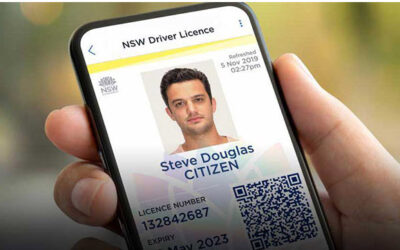- Two men are wanted in the Houston area after they stole an Audi RS5from a local dealership. The brazen theft happened in the middle of the business day, when a salesperson stepped away after letting one of the men take the car for a test drive, while the other sat in the (getaway) car. He then swiped the keys and his license before running out to the lot and taking off in the 450-horsepower coupe.
- A person came to a dealership around 10:30 a.m. on a bicycle and asked to test drive a 2017 orange Dodge Charger. After his driver’s license was scanned, he was given the keys to the vehicle, and he left. When the store closed at 7 p.m., the vehicle was still not returned. The value of the vehicle was reported as over $22,000. One day later around 4:45 p.m., the same vehicle was dropped off. Staff did say there was no verbal or written agreement for when the vehicle needed to be returned, but he did not inform them of the intention to keep the vehicle overnight.
- A 24-year-old woman arrested a couple of weeks ago after she kept a 24-hour test drive car from CarMax for two weeks tried the very same con on another car dealership shortly after being released on bond. This time, the car was a 2016 Toyota Corolla the woman took from Palm Coast Ford this past Friday, April 8. She was supposed to bring it back by 5 p.m. after picking up a co-signer and gave the dealership her cell number. She didn’t return it and didn’t answer the phone.
All car dealers have stories like this. Obviously, letting a potential buyer take out a car on a test drive is fraught. How can new and used auto dealers protect themselves from potential car thieves?
The Importance of the Test Drive
Auto test drives are vital for purchasers, according to National Public Radio. “Most car buyers don’t do more than the most perfunctory test drive of new or used cars,” the organization writes. “But with so much new technology and features in today’s cars and trucks, a thorough test drive is more important than ever.”
“Only 32% of consumers know the exact vehicle they want when they start car shopping online, but 55% test drive only one vehicle- the one they purchase,” notes the Cox Automotive 2017 Car Buyer Journey Study, “This is strong evidence that decision-making is happening online prior to contacting the dealership and that the test drive is an all-important clincher to the purchase.”
In fact, 88% of consumers said they would not purchase a car without test-driving it first, according to the Car Buyer of the Future study. (Even GTA Online has added test drives.)
“Basically the only way to find the right car, the one that will make you happy, as opposed to the ‘best’ car that reviewers rate highest, is to try it out for yourself,” according to AutoBlog.
At the same time, consumers indicated that they preferred to do the test drive on their own terms without an auto salesman in the vehicle with them. The Car Buyer of the Future study noted that 81% of consumers preferred a different test-drive experience than the traditional accompanied test-drive model. Some dealerships even offer 24-hour test drives. So without an employee in the car, how do you protect your valuable asset?
Stopping Auto Test Drive Theft
One way to protect your business from would-be auto thieves is to make sure the person wanting to do the test drive is a legitimate potential purchaser. So how do you check on that?
- Do they look like they could reasonably afford to buy the car they’re test driving, based on what they’re driving now?
- Can they show evidence of having the money to pay for the car, whether it’s through cash, a check, a credit card, or evidence of an auto loan? For example, are they planning to work through your dealership to obtain auto financing? (That said, you still have to be careful; fraud shows up in the auto loan industry as well.)
Checking identification
But the most important way to deter a would-be test drive thief is to ensure that you know the person’s identity. After all, they’ll be much less likely to steal a car if you literally know their name and an address where you can find them.
That’s why it’s important to look at the person’s physical driver’s license not just let them rattle off a number or try to give you a photocopy.
(It’s true that there are other forms of government-issued photo IDs besides driver’s licenses. But if someone is coming for a test drive, it makes sense that they should have a driver’s license on them. Obviously, you’re not going to let someone without a driver’s license take a vehicle for a test drive on public roads in the first place.)
In the case of the stolen Audi, for example, the thieves drove to the dealership in a vehicle without license plates and provided a fake phone number and what was probably a fake name.
Some dealers want more. For example, the Car Store wants to see not only a driver’s license but also a recent utility bill to validate the address — before offering a test drive. Global insurance company Marsh recommends cross-referencing the driver’s license with two other pieces of identification, such as a health card, credit card, passport, current utility bill and, if the customer drove in, a copy of the ownership on their existing vehicle. Some may run a credit check first. Some even expect a deposit.
Recording Identification Information
At the same time, you can’t hang onto the person’s driver’s license for security. After all, they’re going to be driving a car, so they’ll need their driver’s license to legally drive.
Consequently, you need to be able to record the identification data in a safe, legible, and secure way. You don’t want to scribble down illegible information on a piece of paper that gets lost or destroyed. You’ll want to scan the driver’s license perhaps even with your cellphone — so that you have a permanent record of all the data on it. And it would be good for it to automatically be stored in a computer, perhaps even in the cloud where you could gain access to it from anywhere.
Taking down that information also means you’ll have it for other purposes. This car might not work for that customer, but perhaps at some point you’ll get in another one that will. You’ll want to be able to follow up with the customer later about making the sale.
In addition, with COVID-19 and other pandemics, you may be required to keep a list of contacts in the event of a positive case of illness. Marsh, for example, recommends that dealers keep a detailed log to track all those who were in the vehicle (e.g. the customer, salesperson, detail/cleaning staff, etc.) as well as the sanitization of the vehicle.
And who knows? If you contact them in two years, maybe they’ll be ready to test-drive another car from you. Safely and securely, of course.
Interested in learning how optical character recognition can help your business protect itself by using physical identification documents? For a free trial of our API or software, please email us at [email protected].




